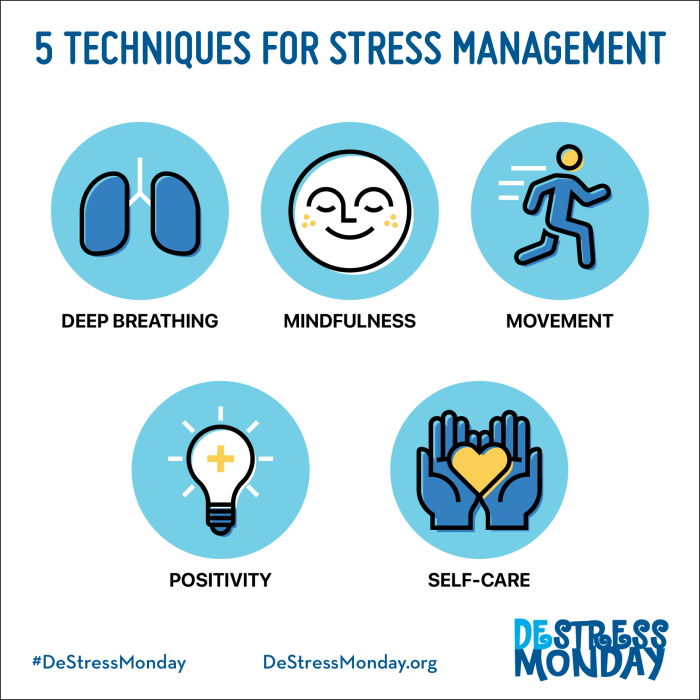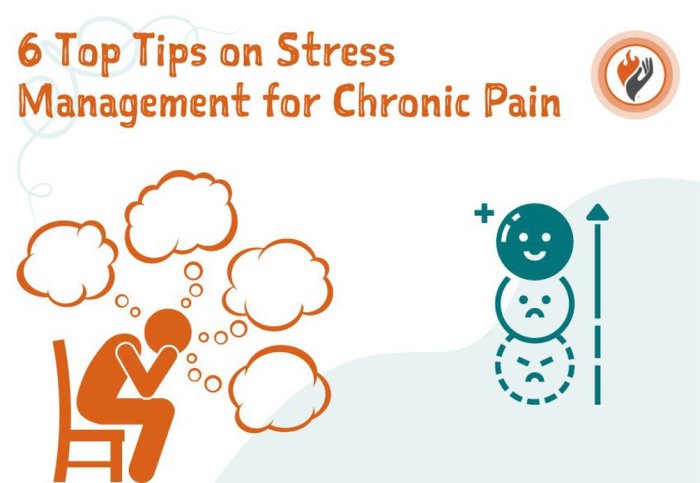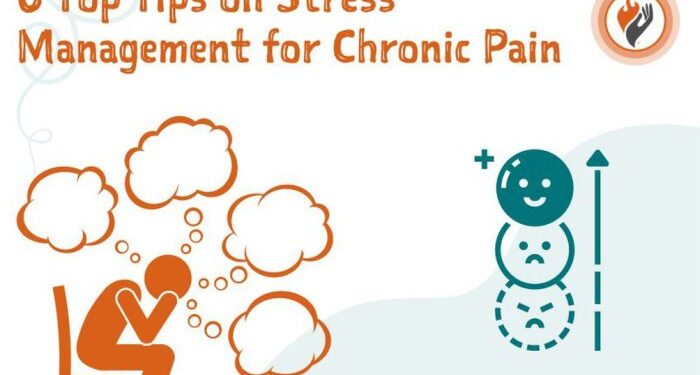Embark on a journey into effective Chronic stress management strategies that work, where we delve into proven techniques to combat the impacts of long-term stress on your well-being.
In the following paragraphs, we will explore various methods and lifestyle changes that can help you better manage chronic stress in your daily life.
Understanding Chronic Stress
Chronic stress is a prolonged form of stress that can have serious implications on both physical and mental health. Unlike acute stress, which is short-term and typically related to immediate threats, chronic stress persists over a longer period and can be caused by various factors in daily life.
Impact of Chronic Stress
- Chronic stress can lead to a weakened immune system, making individuals more susceptible to illnesses and infections.
- It can also contribute to the development of chronic conditions such as heart disease, diabetes, and mental health disorders like anxiety and depression.
- Long-term exposure to chronic stress has been linked to an increased risk of cognitive decline and memory problems.
Common Sources of Chronic Stress
- Work-related stress, including job pressure, long hours, and conflicts with colleagues or supervisors.
- Financial stress due to debt, job insecurity, or inability to meet financial obligations.
- Relationship issues, such as conflicts with family members, friends, or romantic partners.
Consequences of Unmanaged Chronic Stress
- Unmanaged chronic stress can lead to burnout, a state of emotional, physical, and mental exhaustion.
- It may also exacerbate existing health conditions and increase the risk of developing new ones over time.
- Chronic stress can impair decision-making, concentration, and overall cognitive function, impacting daily performance and quality of life.
Effective Stress Management Techniques
When dealing with chronic stress, it is essential to have a set of effective strategies in place to help manage and alleviate the impact it has on your well-being. Here are some evidence-based techniques that have been shown to be beneficial:
Importance of Self-Care in Stress Management
Self-care plays a crucial role in managing chronic stress as it allows you to prioritize your own well-being and mental health. By engaging in activities that promote self-care, such as setting boundaries, practicing self-compassion, and seeking support from loved ones, you can create a stronger foundation for coping with stress.
Mindfulness and Its Role in Reducing Chronic Stress
Mindfulness involves being present in the moment and paying attention to your thoughts and feelings without judgment. This practice has been found to significantly reduce stress levels and promote a sense of calmness. By incorporating mindfulness techniques like meditation, deep breathing, or yoga into your daily routine, you can better manage chronic stress.
Benefits of Physical Exercise in Combating Chronic Stress
Physical exercise is not only beneficial for your physical health but also plays a significant role in combating chronic stress. Engaging in regular exercise releases endorphins, which are known as “feel-good” hormones that help reduce stress and improve mood. Whether it’s going for a run, practicing yoga, or participating in team sports, finding a form of exercise that you enjoy can be a powerful tool in managing chronic stress.
Lifestyle Changes for Stress Reduction

When it comes to managing chronic stress, making lifestyle changes can have a significant impact on your overall well-being. Here are some key areas where you can focus on to reduce stress levels:
Diet and Nutrition
Your diet plays a crucial role in managing stress levels. Consuming a balanced diet rich in fruits, vegetables, whole grains, and lean proteins can help regulate your mood and energy levels. Additionally, avoiding excessive caffeine, sugar, and processed foods can prevent spikes in blood sugar and cortisol levels, which are linked to increased stress.
Improving Sleep Quality
Quality sleep is essential for stress management. Establishing a bedtime routine, creating a relaxing sleep environment, and limiting screen time before bed can help improve sleep quality. Prioritizing 7-9 hours of uninterrupted sleep each night can enhance your resilience to stress and promote overall well-being.
Impact of Social Connections
Building and maintaining strong social connections can have a positive impact on stress management. Surrounding yourself with supportive friends and family members can provide emotional comfort and a sense of belonging, reducing feelings of isolation and anxiety. Engaging in social activities, volunteering, or joining support groups can also help you cope with stress more effectively.
Professional Support and Resources

Seeking professional support and utilizing available resources can significantly help individuals dealing with chronic stress. Therapy, medication, and support groups are some of the options that can provide valuable assistance in managing and reducing the impact of chronic stress.
Types of Therapy or Counseling
- Cognitive Behavioral Therapy (CBT): A structured form of therapy that helps individuals identify and change negative thought patterns and behaviors contributing to stress.
- Psychodynamic Therapy: Focuses on exploring unconscious thoughts and emotions to address underlying causes of stress.
- Mindfulness-Based Stress Reduction (MBSR): Combines mindfulness meditation and yoga to help individuals manage stress and improve overall well-being.
Role of Medication
- Antidepressants: May be prescribed to help manage symptoms of chronic stress, particularly when accompanied by depression or anxiety.
- Anti-anxiety medications: Can help alleviate severe anxiety symptoms that contribute to chronic stress.
- Beta-blockers: Sometimes used to reduce physical symptoms of stress, such as increased heart rate and trembling.
Support Groups and Community Resources
- Local Mental Health Centers: Offer counseling services, support groups, and educational resources for individuals dealing with chronic stress.
- Online Support Groups: Virtual communities where individuals can connect with others facing similar challenges and share experiences and coping strategies.
- Nonprofit Organizations: Some organizations focus on mental health and stress management, providing valuable resources and support for those in need.
Last Point
In conclusion, adopting these strategies can significantly improve your ability to handle chronic stress and lead a more balanced life. Take charge of your well-being today and implement these techniques to experience a positive change.
Questions and Answers
How does chronic stress impact physical health?
Chronic stress can lead to various health issues such as high blood pressure, weakened immune system, and increased risk of heart disease.
What are some evidence-based strategies for managing chronic stress?
Effective strategies include mindfulness meditation, regular exercise, and seeking professional therapy.
Can social connections help in reducing chronic stress?
Yes, maintaining strong social connections and relationships can provide emotional support and help in stress management.


